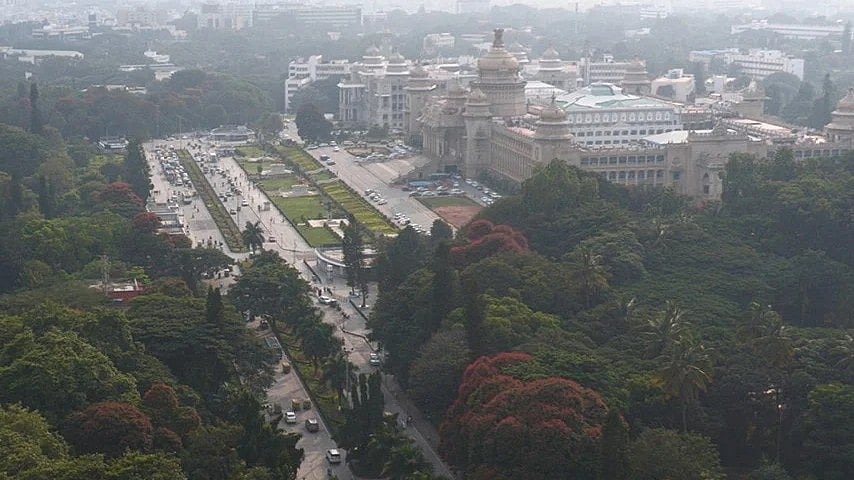
View of Bengaluru city.
Credit: DH Photo
Bengaluru: An analysis by not-for-profit trust Janaagraha has found major gaps in the Greater Bengaluru Governance (GBG) Act, rating it 3.4 out of 10.
The trust said that while the Act is an improvement over the BBMP Act, 2020, it still falls short of the reforms Bengaluru urgently needs.
Janaagraha conducted a clause-by-clause study using its city-systems framework. It compared the GBG Act with the Brand Bengaluru Committee’s (BBC) GBG Bill, the BBMP Act, 2020, and the KMC Act, 1976.
“The analysis across 33 parameters revealed that the GBG Act scored just 3.40 out of 10, barely half as effective as the BBC-GBG Bill. The Act makes some advances in municipal finance and staffing, but fails on planning, empowered political leadership, and citizen participation,” the study noted.
To address the gaps, Janaagraha suggested a roadmap that includes establishing city corporations, completing ward delimitation and reservations, and holding elections by March 2026.
It recommended notifying detailed rules within six months, with public consultation, for key provisions such as mayoral elections, ward committee functioning, budget preparation, accounts, and the Bengaluru Metropolitan Planning Committee.
The study also called for a full-term Mayor-in-Council system, empowered ward committees with funds and planning powers, mandatory area sabhas for neighbourhood-level engagement, financial and administrative autonomy for city corporations, and transparency through open data standards, audits, and live-streamed meetings.
